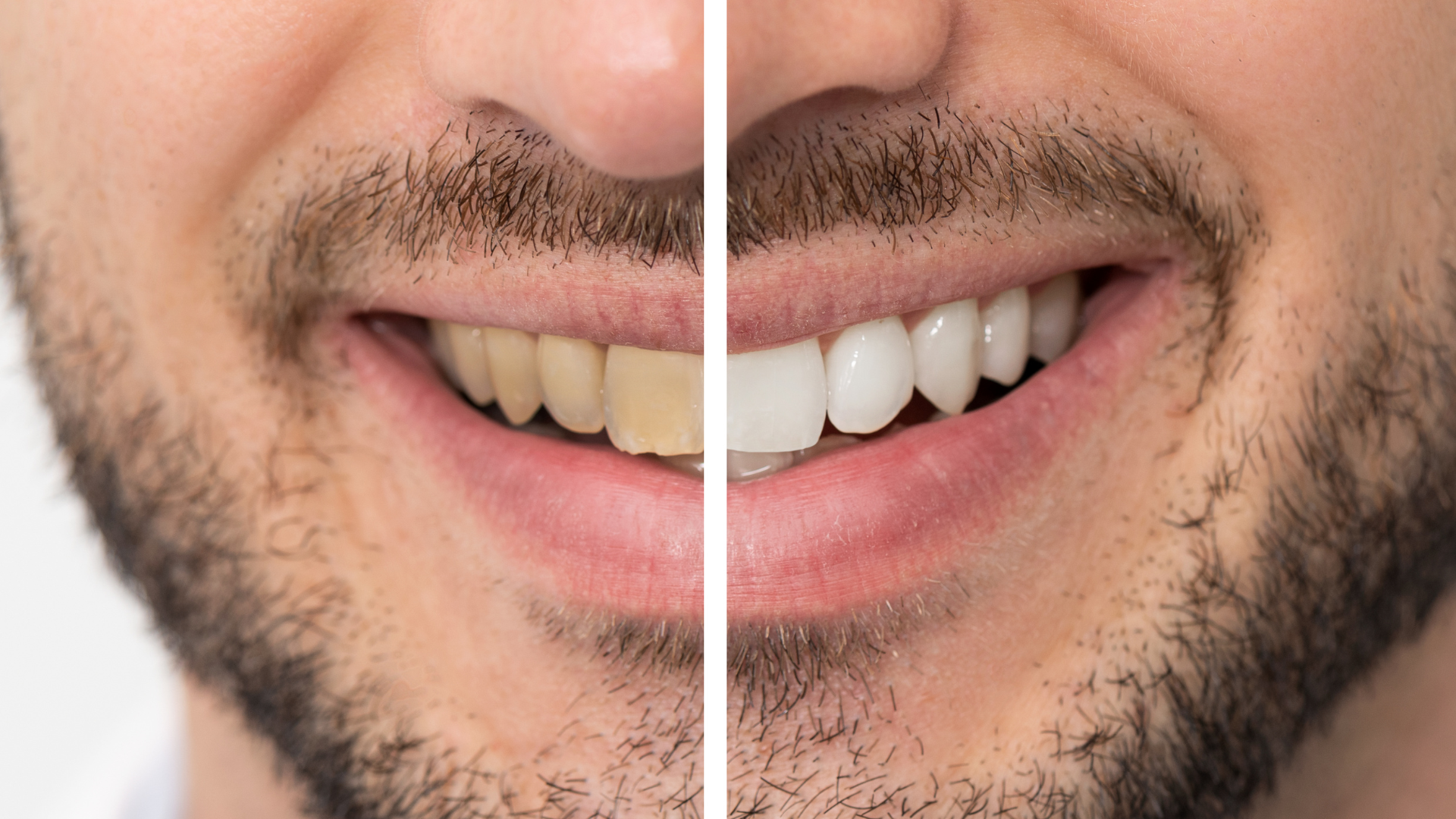How long should dental implants last?

Dental implants are a popular and effective solution for replacing missing teeth. They provide a permanent and natural-looking alternative to dentures and bridges. These artificial tooth roots offer a sturdy foundation for fixed or removable replacement teeth that are custom-made to match your natural teeth. Understanding how long dental implants can last is crucial for those considering this procedure.
The longevity of
dental implants is influenced by various factors, including the quality of materials used, the skill of the dentist, and the patient's oral hygiene habits. Knowing what to expect can help you make an informed decision and plan for proper care and maintenance. Danforth dentists are renowned for their expertise in dental implants, offering advanced techniques and personalized care to ensure optimal results.
1: What Are Dental Implants?
Dental implants are artificial tooth roots, typically made from titanium, that provide a permanent base for fixed or removable replacement teeth. These implants are designed to fuse with the jawbone, creating a stable foundation for one or more artificial teeth. The main components of a dental implant include the implant post, abutment, and crown.
There are two primary types of dental implants:
Endosteal Implants: These are the most common type of implants. They are surgically placed directly into the jawbone and are shaped like small screws, cylinders, or plates.
Subperiosteal Implants: These are used when insufficient healthy jawbone supports endosteal implants. They are placed under the gum but on or above the jawbone.
Both types of implants offer robust support and longevity, making them a reliable choice for tooth replacement.
2: Factors Influencing the Longevity of Dental Implants
Several critical factors influence the longevity of dental implants, including the quality of the implant material, the skill of the dentist, oral hygiene practices, lifestyle choices, and underlying health conditions.
Quality of the Implant Material: High-quality materials, such as titanium or zirconia, are crucial for ensuring the durability and biocompatibility of dental implants. These materials resist corrosion and integrate well with the jawbone.
Skill and Experience of the Dentist: The dentist's expertise plays a vital role in the success and longevity of dental implants.
Danforth dentists are renowned for their advanced training and experience in implantology, employing state-of-the-art techniques and technologies to achieve optimal results.
Oral Hygiene Practices:
Proper oral hygiene is essential for preventing peri-implantitis, an inflammatory condition that can lead to implant failure. Regular brushing, flossing, and professional cleanings help maintain the health of the gums and surrounding bone.
Lifestyle Factors: Smoking, poor diet, and teeth grinding can significantly reduce the lifespan of dental implants. Smoking impairs healing and increases the risk of infection, while a diet high in sugars can contribute to gum disease. Using a nightguard can help protect against damage from teeth grinding.
Health Conditions: Conditions such as diabetes and osteoporosis can affect the success of dental implants. Well-managed diabetes and treatments to address bone density issues can help ensure the stability and longevity of the implants.
By addressing these factors, patients can maximize the lifespan of their dental implants and enjoy a healthy and functional smile for many years.
3: The Dental Implant Procedure
Initial Consultation and Planning
The dental implant process begins with an initial consultation. During this visit, the dentist evaluates the patient’s oral health, takes X-rays or 3D images, and discusses the patient’s medical history. A personalized treatment plan is created, outlining the procedure steps and timeline.
Surgery and Placement of the Implant
The next step is the surgical placement of the implant. Under local anesthesia or sedation, the dentist makes a small incision in the gum to expose the jawbone. A hole is drilled into the bone, and the titanium or zirconia implant post is inserted. The gum tissue is then stitched closed over the implant to protect it during healing.
Healing Period and Osseointegration
Osseointegration, where the implant fuses with the jawbone, typically takes three to six months. This phase is crucial for the implant's stability and success. Regular follow-up appointments are scheduled to monitor the healing process and ensure no complications.
Placement of the Abutment and Crown
Once osseointegration is complete, a minor procedure attaches the abutment, which connects the implant post to the crown. Impressions of the teeth are taken to custom-make the crown, ensuring it matches the shape, size, and colour of the patient’s natural teeth. The crown is then securely placed onto the abutment.
Post-Operative Care and Maintenance
Proper post-operative care and maintenance are essential for the long-term success of dental implants. Patients are advised to maintain excellent oral hygiene, avoid hard or sticky foods, and attend regular dental check-ups. A dentist should promptly address pain, swelling, or implant mobility issues.
By following these steps and adhering to post-operative care guidelines, patients can ensure the success and longevity of their dental implants.
4: Average Lifespan of Dental Implants
General Statistics and Average Lifespan
Dental implants are known for their durability and longevity. On average, they can last 15 to 25 years, and with proper care, they can even last a lifetime. Factors such as the quality of the implant material, the skill of the dentist, and the patient’s commitment to maintaining good oral hygiene significantly influence this lifespan.
Studies and Research Findings from the Canadian Dental Association
Research conducted by the Canadian Dental Association (CDA) supports dental implants' high success rates and longevity. According to the CDA, dental implants have a success rate of approximately 95% in healthy individuals
By adhering to professional advice, patients can maximize the lifespan of their dental implants, ensuring a healthy and confident smile for many years.
5: How to Extend the Life of Your Dental Implants
Importance of Regular Dental Check-Ups
Regular dental check-ups are crucial for the longevity of dental implants. During these visits, your dentist will monitor your gums' health and the implants' stability, performing professional cleanings to remove plaque and tartar. Danforth dentists offer comprehensive implant maintenance services, ensuring your implants remain in excellent condition.
Proper Oral Hygiene Techniques
Maintaining excellent oral hygiene is essential for the long-term success of dental implants. Key practices include:
- Brushing: Brush at least twice daily with a soft-bristled toothbrush and non-abrasive toothpaste to prevent plaque buildup.
- Flossing: Use dental floss or interdental brushes daily to clean between teeth and around the implants, removing food particles and plaque.
- Rinsing: Rinse your mouth with an antiseptic mouthwash to reduce bacteria and maintain healthy gums.
- Avoiding Harmful Habits
Certain habits can negatively impact the longevity of dental implants:
- Smoking: Smoking impairs healing and increases the risk of implant failure. Quitting smoking is highly recommended to enhance the success of your implants.
- Teeth Grinding (Bruxism): Grinding or clenching your teeth can exert excessive pressure on your implants. Using a nightguard can protect your implants from this stress.
Healthy Diet and Nutrition
A balanced diet supports overall oral health and the longevity of dental implants. Focus on:
- Calcium and Vitamin D: These nutrients are vital for maintaining strong bones. Include dairy products, leafy greens, and fortified foods in your diet.
- Vitamin C: Essential for healthy gums, vitamin C can be found in citrus fruits, berries, and vegetables.
- Limiting Sugary Foods: Reduce your intake of sugary and acidic foods and beverages that can contribute to tooth decay and gum disease.
Protective Measures
Taking protective measures can further safeguard your dental implants:
- Mouthguards for Sports: If you participate in contact sports, wearing a mouthguard can protect your implants and natural teeth from trauma.
- Nightguards for Bruxism: As mentioned, if you grind your teeth at night, a custom-fitted nightguard can prevent excessive wear and damage to your implants.
By incorporating these practices into your daily routine and working closely with your dentist, you can significantly extend the life of your dental implants, ensuring a healthy and confident smile for many years.
6: Benefits of Choosing a Reputable Dentist for Implants
Importance of Choosing an Experienced Dentist
Selecting a skilled and experienced dentist is crucial for the success and longevity of dental implants. An experienced dentist, particularly a Danforth dentist, can accurately assess your needs, perform the procedure precisely, and provide comprehensive care.
Success Rates and Patient Satisfaction
Reputable dentists have high success rates and patient satisfaction. With a success rate of approximately 95%, dental implants placed by experienced dentists are more likely to integrate properly with the jawbone and remain stable over time. Patients report high levels of satisfaction due to the natural look and feel of their implants and the improved functionality and confidence they provide.
Advanced Techniques and Technologies
Top dentists stay at the forefront of dental technology, utilizing advanced techniques and tools to enhance the success of dental implants. This includes 3D imaging for precise planning, computer-guided surgery for accurate implant placement, and high-quality materials like titanium and zirconia. These innovations ensure optimal outcomes and long-term durability of the implants.
By choosing a reputable Danforth dentist, patients benefit from expert care, cutting-edge technology, and a higher likelihood of successful and long-lasting dental implants.
FAQs
How long do dental implants typically last?
Dental implants typically last 15-25 years. Factors affecting longevity include the quality of the implant material, the dentist's skill, oral hygiene practices, lifestyle choices, and overall health.
How can I ensure my dental implants last as long as possible?
Maintain excellent oral hygiene, attend regular dental check-ups, and adopt healthy lifestyle choices such as avoiding smoking and eating a balanced diet.
Are there any health conditions that might affect the lifespan of my dental implants?
Conditions like diabetes and osteoporosis can impact implant longevity. Proper management of these conditions is crucial for implant success.
What should I do if I notice something wrong with my dental implant?
Consult a dentist immediately if you experience pain, swelling, or mobility of the implant. Early intervention can prevent complications.
How do I choose the right dentist for my dental implant procedure?
Choose an experienced and reputable dentist. Danforth dentists are known for their expertise and advanced techniques in implantology.
Conclusion
Understanding the longevity of dental implants and the factors influencing their success is essential. Consult a Danforth dentist for personalized advice and top-notch care.




